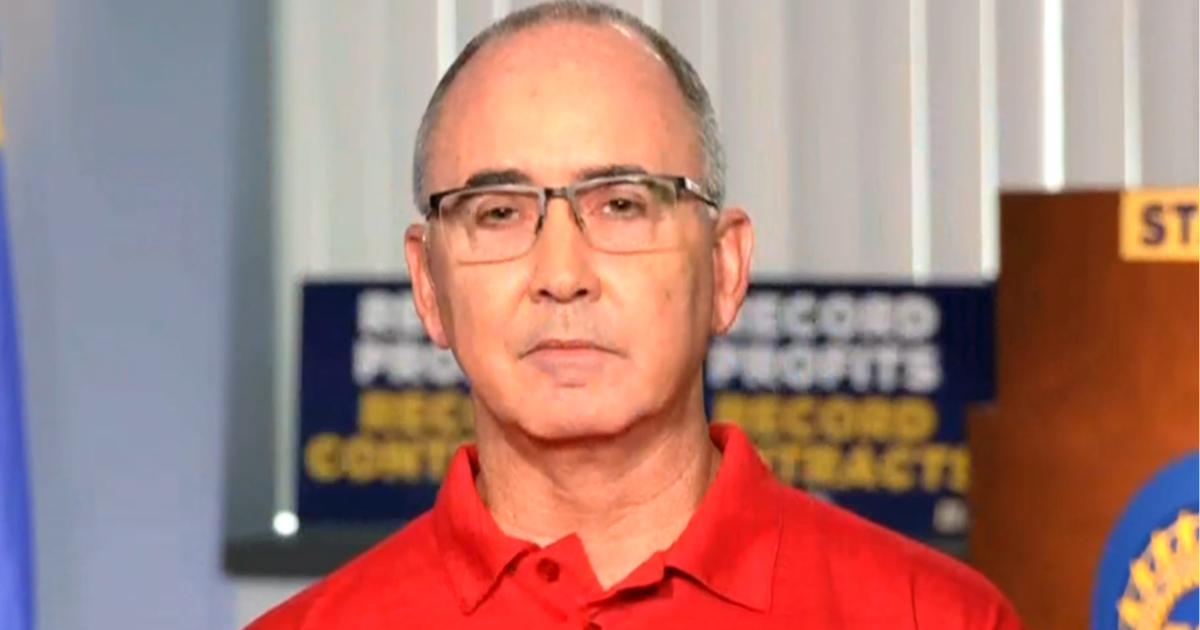The United Auto Workers (UAW) may employ a strategy similar to the 1998 strike if they decide to strike against the Detroit automakers next month, potentially causing serious damage to the industry by targeting key component plants or focusing on one automaker while striking at plants that produce its bestselling vehicles.
The United Auto Workers union has filed unfair labor practice charges against General Motors and Stellantis, accusing them of refusing to bargain in good faith, while Ford Motor offered a 9% wage increase, much lower than the union's demand for a 46% hike.
Ford Motor has made a contract offer to the United Auto Workers (UAW), which would provide hourly employees with increased wages, lump-sum bonuses, and improved benefits.
The president of the United Auto Workers (UAW) union criticizes General Motors' wage offer as "insulting" and warns of an impending strike if a fair deal is not reached.
United Auto Workers President Shawn Fain stated that the Detroit Three automakers, including Stellantis, Ford, and General Motors, are making progress towards meeting the union's demands as the deadline for current contracts approaches. Stellantis offered a 14.5% wage increase, Ford proposed a cost-of-living wage adjustment, and GM suggested a 10% boost, but the offers still fall short of the UAW's requested 46% increase.
The United Auto Workers union has gone on strike against General Motors, Ford, and Stellantis simultaneously, demanding increased wages, benefits, and job protections, marking the first time in its history that it has struck all three of America's unionized automakers at once.
The United Auto Workers (UAW) held a limited and targeted strike against General Motors, Ford, and Stellantis over issues including pay, pensions, and work hours, with demands for a 40% wage increase over four years and improvements to retiree benefits; the automakers have offered wage increases of around 14.5% to 20% over the same period, citing investments in electric vehicle production and the need to balance wage increases with costs associated with EV development.
Former President Donald Trump refuses to support the United Auto Workers (UAW) strike against the Big Three automakers, framing the workers' fight as a partisan issue and encouraging them to stop paying union dues, despite claiming to champion American manufacturing workers.
The president of the United Auto Workers rejects a 21 percent pay increase offer from Stellantis, leading to a continued strike against major carmakers.
The threat of a full walkout by United Auto Workers (UAW) poses a potential economic impact of over $5 billion on auto giants Ford, General Motors, and Stellantis, with laid-off workers and higher car prices among the consequences.
The UAW is threatening to escalate its strike against Big Three automakers GM, Ford Motor, and Chrysler parent Stellantis, which could have significant implications for the labor confrontation.
The presence of foreign automakers in the southern United States has been driven by the region's union opposition and the financial incentives offered, but a successful United Auto Workers (UAW) strike could lead to pay raises and make the UAW more attractive, causing concern for foreign automakers who have chosen the South as their manufacturing base.
Despite expanding its strike against GM and Stellantis, the United Auto Workers (UAW) union has decided not to expand the number of Ford workers on strike due to progress in negotiations with Ford.
US autoworkers are striking against General Motors, Ford, and Stellantis (formerly Chrysler) to fight for fair wages and benefits, as well as taking on the power of the billionaire class represented by Stellantis chairman John Elkann and his wealthy family dynasty.
United Auto Workers (UAW) leaders met with Stellantis, the parent company of Chrysler, Dodge, Jeep, Ram, and Fiat, as negotiations continue during the 14th day of the strike against the Detroit Three automakers.
Negotiators for the United Auto Workers (UAW) and Ford Motor have made progress on pay increases, but significant issues such as pay and union representation at future battery plants remain unresolved, as the ongoing strike against the Detroit Three automakers enters its 20th day.
The United Auto Workers (UAW) has expanded its strike by calling 8,700 workers at Ford Motor Co.'s Kentucky Truck Plant to join the picket lines, increasing the total number of striking Detroit Three autoworkers to 34,000 and halting production at Ford's largest and most profitable plant, further impacting production at other Ford plants and suppliers, in an effort to gain a fair contract at Ford and the rest of the Big Three.
The president of the United Auto Workers (UAW) labor union leading the strike against major U.S. automakers earned a high salary of $347,389, placing him in the top 5% of earners in his home state of Indiana.
The United Auto Workers union is not planning any additional walkouts against Ford, General Motors, and Stellantis, but has changed its strategy and can send workers out at any time, according to UAW President Shawn Fain.
The United Auto Workers (UAW) union is ready to add more workers to its picket lines at any time as negotiations with the Big Three automakers enter a new phase, marking a tactical shift in the strike strategy. The union aims to speed up progress in negotiations and put pressure on the automakers to meet their demands for higher wages and benefits.
The United Auto Workers (UAW) president, Shawn Fain, announced that the union is prepared to expand its strike against the Big Three automakers at any time, marking a new phase in their fight for better contracts.
Ford executive chairman, Bill Ford, has called on the United Auto Workers (UAW) union to end their 32-day strike and reach a new labor agreement, warning of the growing impact to the automaker and the U.S. economy.
